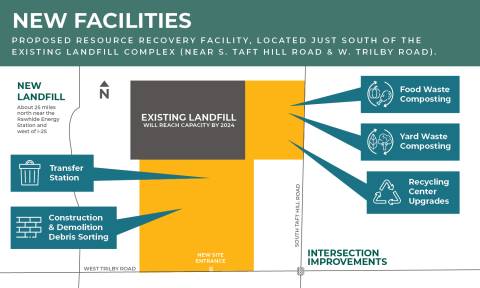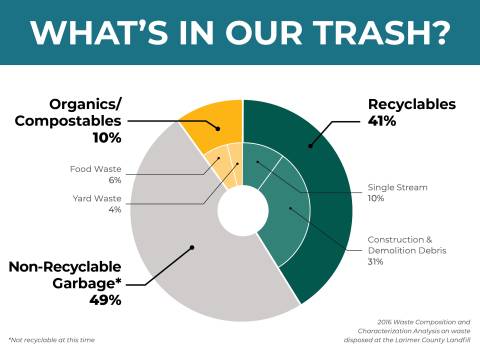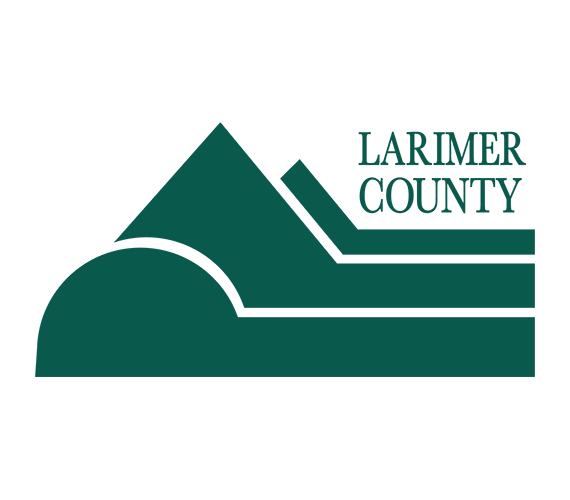Planning for the Future: North Front Range Regional Wasteshed
The North Front Range Regional Wasteshed Planning process is a direct response to the approaching closure of the landfill in mid to late 2025 and the unavoidable change to our system of waste management it will bring. Representatives from Larimer County, the City of Loveland, the City of Fort Collins, and the Town of Estes Park form the Solid Waste Policy Council or the "the coalition" that advises the Larimer County Board of County Commissioners and other parties on solid waste management and planning matters.
In result, these municipal partners entered into an Intergovernmental Agreement to support solid waste goals. They have been working diligently since 2015 with the shared goal of implementing an innovative, effective, community-driven system for waste management and waste diversion in the region upon the landfill’s closure.
After an exhaustive evaluation of all of the County’s different options upon the landfill closure, the following new facilities were selected as a part of an integrated approach for waste diversion of solid waste in our region following a Reduce, Reuse, Recycle & Compost model.
- Build a New Sanitary Landfill
A modern, sanitary, innovative landfill is under construction on a section of County-owned land in northern Larimer County at 15669 N County Rd 9, Wellington, CO 80549 (near the Rawhide Energy Station and west of I-25) and would predominantly accept trash from the Central Transfer Station and commercial haulers. This facility will have limited accessibility to the general public and will be 100% county-owned. - Build a New Central Diversion and Transfer Station
Convenient resource recovery facility for both residents and trash haulers in separate traffic lines. The transfer station will send materials to the appropriate facilities. This facility is planned to be under construction from February 2025 through April 2026 with intentions to open soon afterwards. - Build a New Construction & Demolition Waste Processing Facility
A covered facility that sorts out mixed loads of materials from building sites (such as wood, metal, and concrete, etc.) for beneficial reuse/recycling. This facility could divert approximately 120,000 tons - about 30% of our total waste - from the landfill. - Build a New Yard Waste Composting System
A windrow composting system that turns yard trimmings, such as leaves, branches, and grass, into compost, is a valuable soil amendment. This facility could divert approximately 15,000 tons from the landfill. - Build a New Food Waste Composting System
An enclosed composting system that turns food scraps into a valuable soil amendment (compost). This facility could divert approximately 25,000 tons from the landfill. - Upgrade our current Recycling Center
Improve our ability to handle current and future volumes of mixed curbside recycling.







